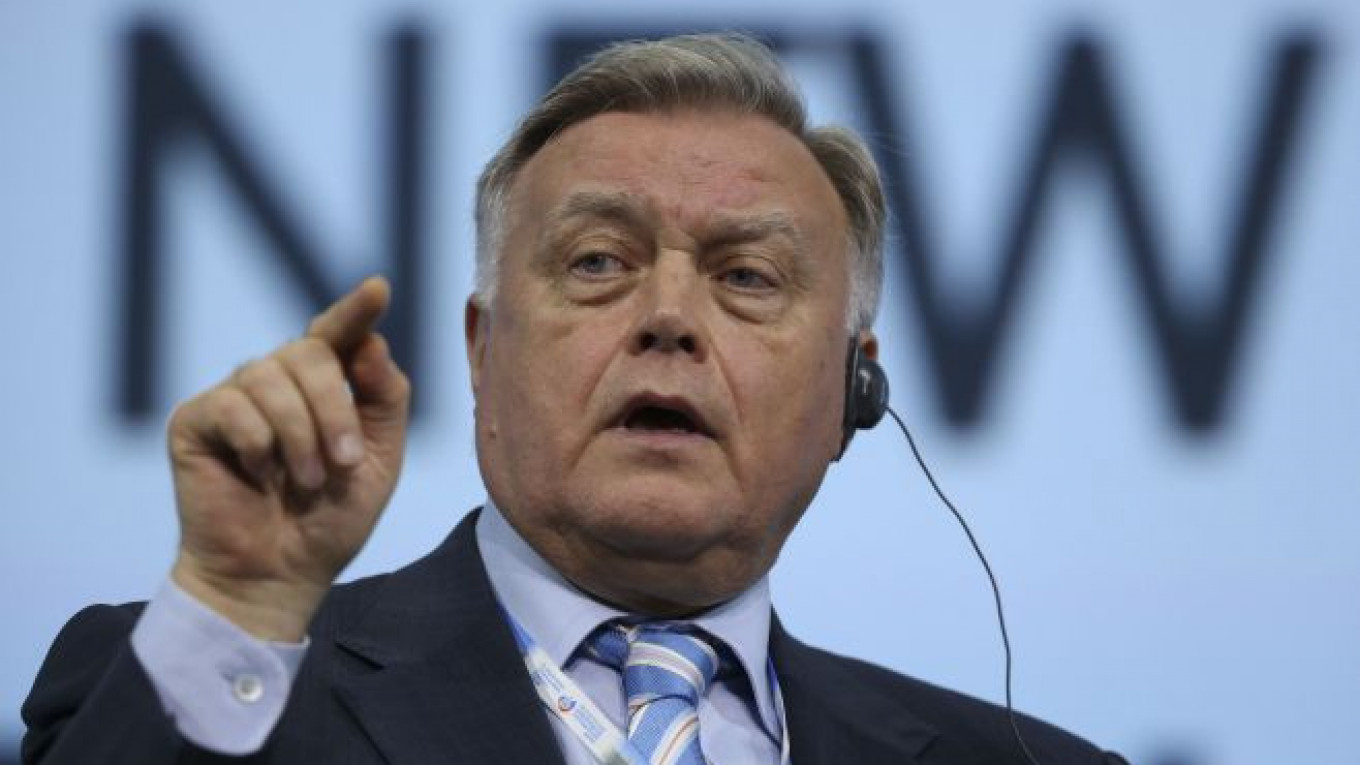ST. PETERSBURG — Animosity between Russia and the West over Ukraine's disintegration has forced Russia to change its course toward the East, Russian Railways chief Vladimir Yakunin said in an interview with The Moscow Times on Friday.
Yakunin, 65, who manages one of Russia's biggest companies — Russian Railways employs more than 880,000 people — had sanctions imposed on him by the United States and the European Union in March as member of President Vladimir Putin's inner circle.
Yakunin has his own interpretation of the sanctions, saying in softly accented English: "It was clearly stated that I was sanctioned not because of my wrongdoings but because of my connections with some persons on the top of Russian hierarchy,"
"I consider the sanctions list to be a list of people who actually do something positive for our society and our country. It was not us who introduced this clash, but we were sanctioned and disgraced in the mass media, he said.
Yakunin, who has been accused of massive corruption by opposition politician Alexei Navalny, singled out Putin as "a leader who was disgraced in a way that is absolutely not acceptable in normal diplomatic relations even in the modern tense period of life."
He said Western pressure was "not civilized behavior" and that this demonstrated lack of democracy in the West.
The Moscow Times spoke to Yakunin at the St. Petersburg International Economic Forum, a huge annual get-together that attracts thousands of high-profile business leaders and official from Russia and abroad. This year, the international contingent is slightly thinner than usual, as executives, particularly from the U.S., have bowed to political pressure to keep away.
"Lots of people who came to this forum explain in private that in their countries American ambassadors were reaching them with letters and telephone calls urging them not to come to this event or they will have to face consequences," Yakunin said.
In this situation nothing remains to Russia but to turn to the east, he said.
"We can aim at reaching new level of relations with our friends in China, South Korea, Japan, the Pacific countries, Latin America and so on," he said.
But while confident of the bounties that await Russia from ramping up cooperation with new partners, Yakunin is sure that the West will turn back to Russia as soon as the media pressure subsides.
"Business people are very pragmatic. Russia is a very important market, which has nothing to do with emotions, he said.
Contact the author at i.nechepurenko@imedia.ru
A Message from The Moscow Times:
Dear readers,
We are facing unprecedented challenges. Russia's Prosecutor General's Office has designated The Moscow Times as an "undesirable" organization, criminalizing our work and putting our staff at risk of prosecution. This follows our earlier unjust labeling as a "foreign agent."
These actions are direct attempts to silence independent journalism in Russia. The authorities claim our work "discredits the decisions of the Russian leadership." We see things differently: we strive to provide accurate, unbiased reporting on Russia.
We, the journalists of The Moscow Times, refuse to be silenced. But to continue our work, we need your help.
Your support, no matter how small, makes a world of difference. If you can, please support us monthly starting from just $2. It's quick to set up, and every contribution makes a significant impact.
By supporting The Moscow Times, you're defending open, independent journalism in the face of repression. Thank you for standing with us.
Remind me later.


